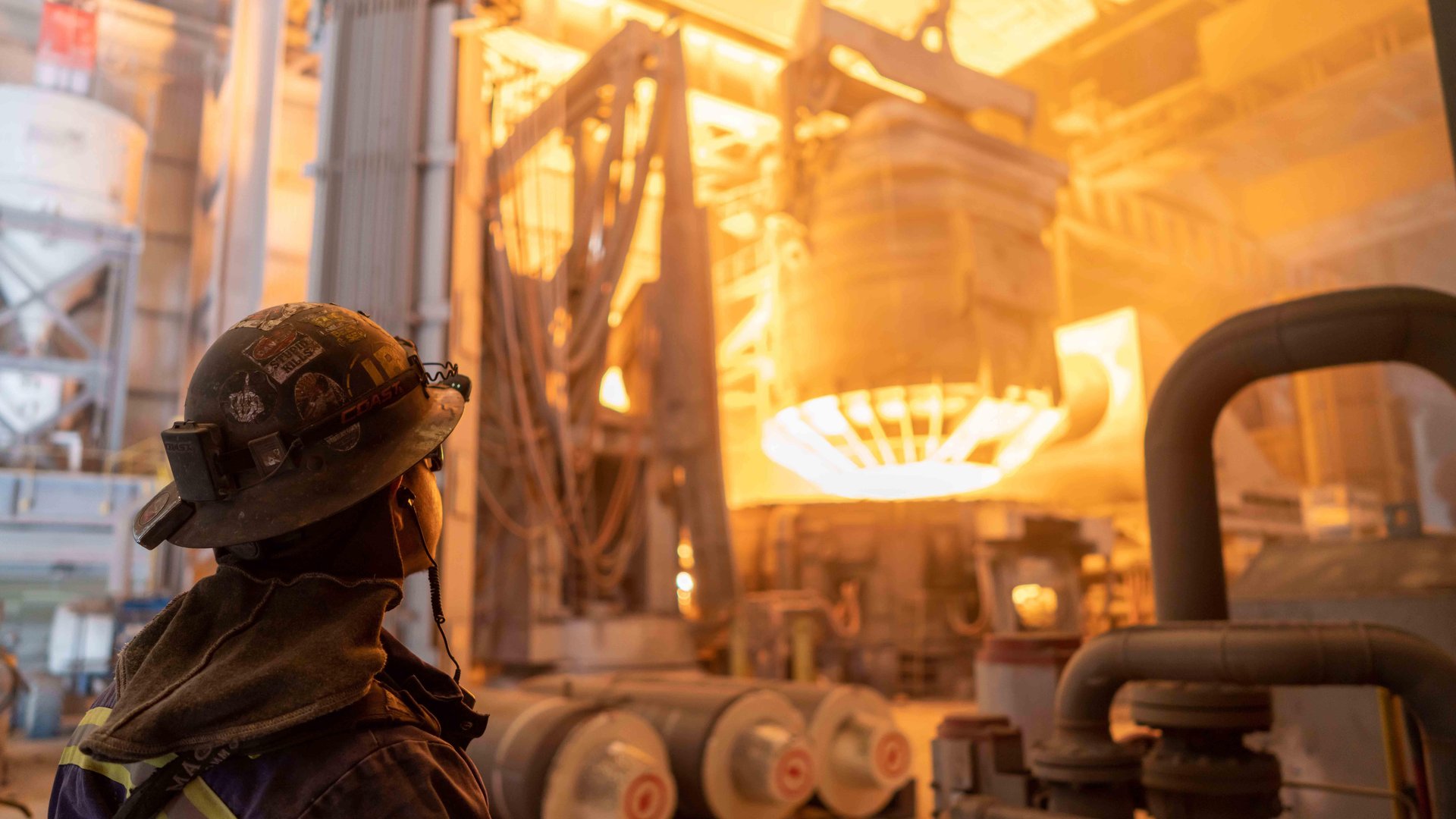Saving U.S. Steel
A Japanese giant and a U.S. rival battle for America's iconic but ailing steelmaker.

Hi, Quartz members!
Suggested Reading
In one of his last major industrial policy decisions before leaving office, President Joe Biden blocked the sale of the iconic Pittsburgh-based American steelmaker, U.S. Steel, to rival Japanese firm Nippon Steel. Nippon was offering $55 per share, well above the $35 offered by U.S.-based steelmaker Cleveland-Cliffs, and way above the $30 that U.S. Steel’s shares were trading for at the time.
Related Content
Biden cited national security concerns in his decision, saying U.S. Steel needs to remain domestically owned. Never mind that Japan is a staunch American ally. The issues at U.S. Steel go deeper. In fact, the problems in Pittsburgh are a web of political calculus, personal interest, and industrial and commercial competitiveness that put at risk a 124-year-old symbol of America’s industrial prowess.
The problems began with U.S. Steel’s faltering operations. Its most profitable parts are its iron ore mining operation and, oddly, its aging, coal-powered blast furnaces. But both require significant investment to remain competitive and significant manpower to operate. Cleveland-Cliffs has a record of paying its union employees well, and it attempted to acquire U.S. Steel in 2023 with the union’s backing. But it was outbid by Nippon Steel, which struck a deal in December of that year. Since then, Nippon has made a series of concessions to the union, pledging not to cut the workforce for a decade.
Both Cleveland-Cliffs and Nippon have pledged to invest in revamping U.S. Steel’s aging mills, and both are also interested in the mines that U.S. Steel owns, which hold vast reserves of iron ore.
Biden’s original opposition to the Nippon deal seemed to come as the 2024 election heated up, and both Biden and now-President Donald Trump sought the support of Pennsylvania’s labor unions. Standing against a foreign buyer seemed like good politics.
“It sounds great as a campaign promise, but when you look at the quantitative, it makes no sense,” said Gordon Johnson, CEO of GLJ Research. “Behind blocking that deal, there are going to be thousands of people who lose their jobs, and that, you could argue, is a threat to national security because we will have less steelmaking capacity.”
After the union was able to wring significant concessions, union workers also backed the deal. And with its remarkably high price, the Nippon deal also appealed to U.S. Steel’s shareholders and management.
The opposition
Automakers oppose the Cleveland-Cliffs proposal because they fear it would give the company a stranglehold on rolled sheet steel, the stuff that is stamped in giant presses to make body parts and chassis for cars. But more opposition appears to come from union rank-and-file, who last week wrote an open letter to Trump saying they don’t trust Cleveland-Cliffs CEO Lourenco Goncalves to follow through on his promises to workers.
Goncalves and the No. 1 steel maker in the U.S., Nucor, are reportedly now working on a joint offer that would see Cleveland-Cliffs take over U.S. Steel in an all-cash deal. Cleveland-Cliffs would adopt U.S. Steel’s name and move its headquarters to Pittsburgh.
KeyBanc analyst Philip Gibbs says one likely scenario could involve Nippon buying a minority stake in U.S. Steel. That would give the workers their guarantees — if Nippon delivers — and shareholders and management a high price for their stock.
What’s the real national security risk?
Given the fact that U.S. Steel doesn’t produce anything that’s used in the defense industry (its biggest customers are car makers and buyers of pipe), and Nippon’s promise to invest billions in modernizing plants while promising to keep union jobs, it’s hard to see any national security risk. And many foreign companies are deeply integrated into the U.S. military’s supply chain.
“It actually looks like the deal would be a benefit for national security if you’re concerned about domestic steel production,” said Brian Reissaus, a former U.S. Treasury official who spent much of his career there reviewing international transactions as the chair of CFIUS, the U.S. government’s interagency Committee on Foreign Investment in the U.S. “You have a Japanese investor — a long-term allied country — the target isn’t doing anything that appears to be overly sensitive and one that is in desperate need of a capital infusion, and to the extent you don’t take the investor at its word, there are legally binding and enforceable remedies that the government can put in place that ensures they make those capital investments and that they don’t shut down those operations that truly drive the concern.”
A fine mess
After Biden nixed the deal, U.S. Steel and Nippon jointly filed a pair of lawsuits accusing Biden, the steelworkers union boss, and the Cleveland-Cliffs CEO of conspiring to sink it. One lawsuit asks a federal appeals court in Washington to set aside Biden’s decision, and another in federal court in Pittsburgh accused Cleveland-Cliffs, Goncalves, and United Steelworkers President Dave McCall of racketeering and anticompetitive activities.
“The president and CFIUS corrupted and compromised a critical mechanism for the protection of America’s national security in order to serve the president’s personal political agenda,” Nippon Steel and U.S. Steel said in their complaint.
The key stakeholders now are the union workers, who want to keep their jobs and their pay; Cleveland-Cliffs, which would like a bigger share of the U.S. rolled steel market; Nippon, which wants to diversify out of slow-growth Japan into a U.S. economy where demand for steel is expected to grow, shareholders and management of U.S. Steel, who are looking for the highest financial reward; and the new Trump administration.
Ultimately, said Key Banc’s Gibbs, the future of U.S. Steel will come down to what is becoming a hallmark of the Trump administration: a deal. As Gibbs said, “Everyone’s negotiating.”
—Peter S. Green, Contributing Editor